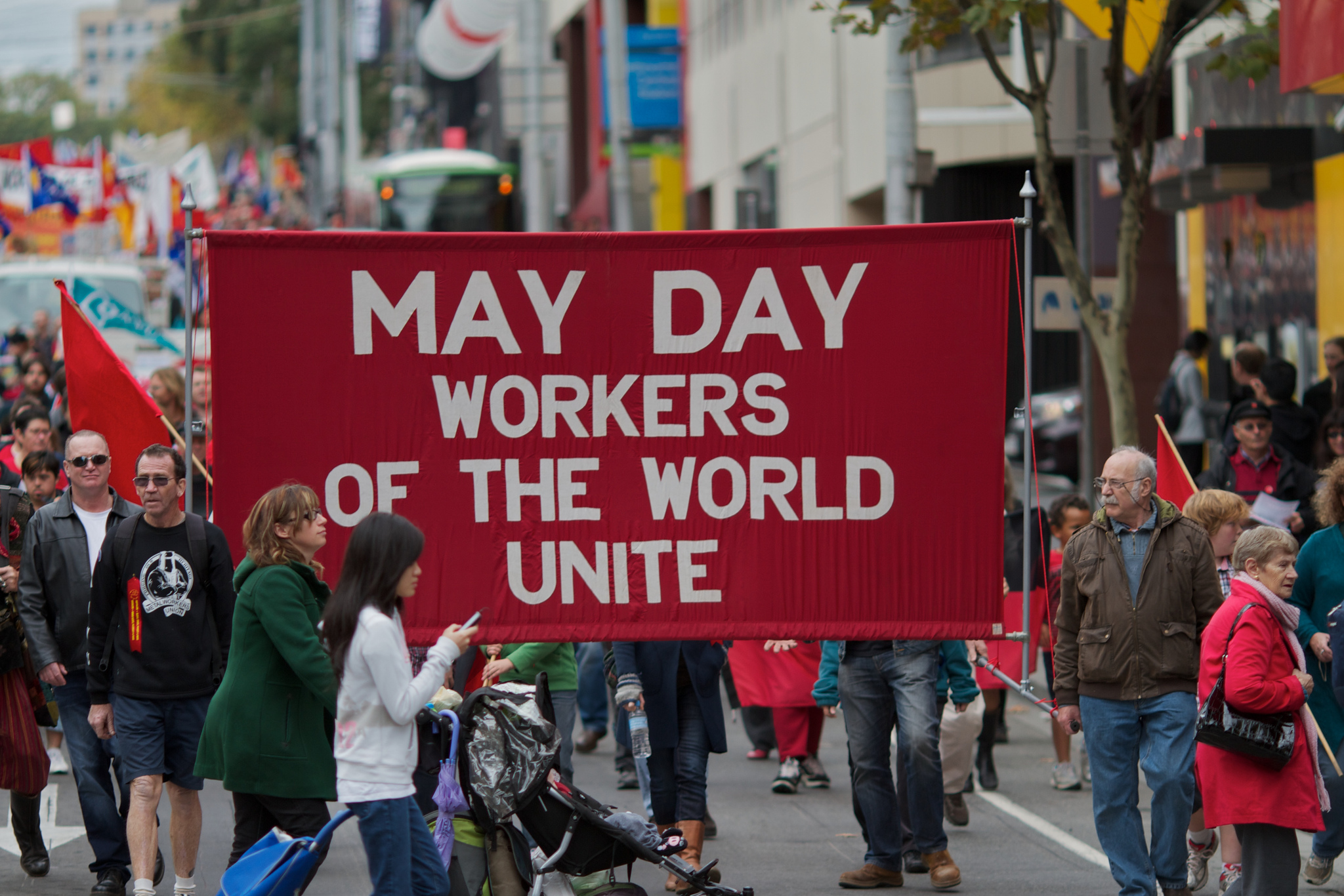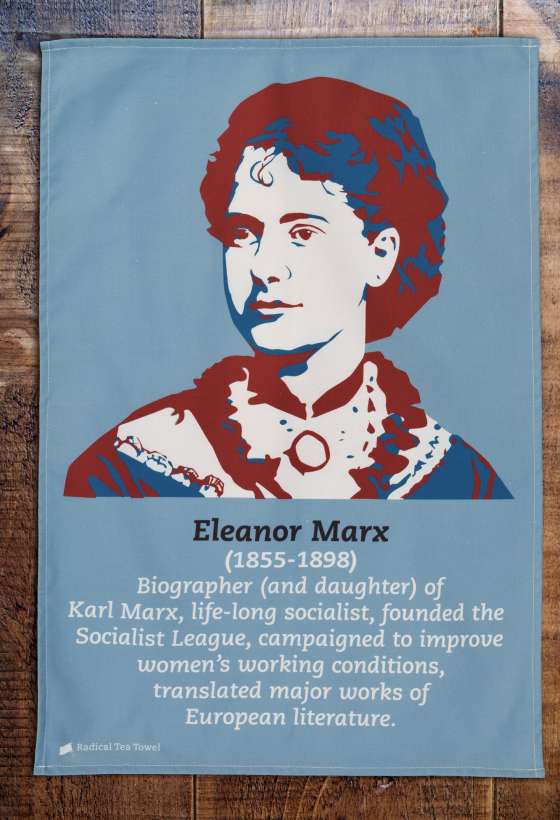The Radical Internationalism of Eleanor Marx
Posted by Pete on 31st Mar 2019
Given we began March with a celebration of International Women’s Day, it seems appropriate to end the month by recognising one of the most internationalist women of modern times.
Eleanor Marx, or ‘Tussy’ as she was known to family and friends, sadly committed suicide today in 1898.
Until now, her tragic death and famous father have dominated tales of the younger Marx – pushing her own extraordinary life of socialist activism onto the margins.

But this unfair storytelling is starting to face some welcome resistance.
More and more people are beginning to learn that Eleanor was a major figure in the British and European labour movements at the end of the 19th century.
And she stood out on the basis of much more than just her prestigious surname.
Eleanor Marx: embracing internationalism
She was, for example, an uncompromising internationalist at a time when not all socialists were.
National arrogance was widespread among many right-leaning labour activists in the late 19th century. British trade union leaders were particularly fond of bragging about how English socialism was somehow better than its European counterparts.
Many on the left of the labour movement also made the occasional stumble into nationalist thinking.
Friedrich Engels, the Communist Manifesto co-star and effectively a second father to Eleanor, was known to keep some stubborn nationalist prejudices.
But there was never any risk of this with Eleanor. Instead, she held firm to her dad’s iconic and global battle cry calling on all labouring classes the entire world over to stand together.

From its foundation in 1893, she pushed Keir Hardie’s Independent Labour Party to take up international socialist solidarity as a central principle.
Meanwhile, as a leading member of several international trade unions, Eleanor made sure that industrial action against laissez-faire capitalism operated across national borders.
She was both a secretary and translator for the International Glass Workers’ Union, and when glass workers in Yorkshire and Lancashire faced a 16-week lockout by their bosses in early 1892 Eleanor helped organise donations from fellow union members in Germany, France, and Denmark.
Kept going by the funds from their foreign comrades, the English strikers won – the glass bosses eventually giving in to their demands.
Standing with London's Jewish Community
Eleanor’s internationalism blossomed in her fiery resistance to anti-Semitic racism, which was pervasive in late 19th century Europe and sadly also managed to seep its way into the labour movement through bigoted versions of Christianity and bare-faced concessions to nationalism on the right.
Marx was herself part-Jewish on her dad’s side (Karl's father came from a family of German rabbis).
What’s more, she was defiantly proud of it.
Eleanor felt a close connection to London's Jewish working-class community which was starting to establish itself from Russian refugees in Whitechapel, Stepney Green, and Mile End. From 1889, Marx began to learn Yiddish so that she could give lectures on socialism to the newcomers.
It’s unsurprising, then, that when the ideologically conservative bosses of the Trades Union Congress forced through a resolution calling on the government to control the immigration of ‘alien workers’, Eleanor stood against them.
At a mass protest meeting called by Jewish trade unions in East London, she roared:
“Jews! The English anti-Semites have come to the point where the English workers’ organisation calls on the government to close England’s doors to the poor alien, that is, in the main, to the Jew. You must no longer keep silent.”
Fifty years before the Battle of Cable Street, Eleanor Marx was already battling anti-Semitism in London's predominantly Jewish East End.
More than just the Marx name
Inspired by her legendary father, Eleanor Marx lived her own life of revolutionary activism – becoming far more than a mere footnote in his story.
Marx was one of the many radical women of her time who made sure that revolutionary, working-class politics stormed into the 20th century as an intersectional, internationalist force, chasing down racism and narrow-minded nationalism as they came.
In light of all this, Karl Marx, while not defining his daughter, would surely have been proud to call her his comrade.
As should we.
Browse our designs celebrating both members of the Marx family and more
